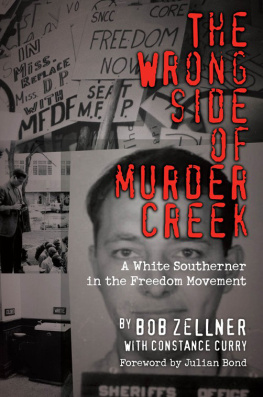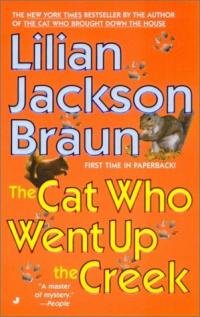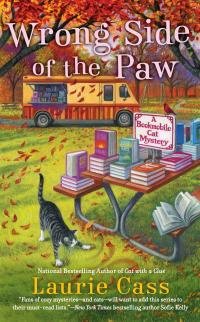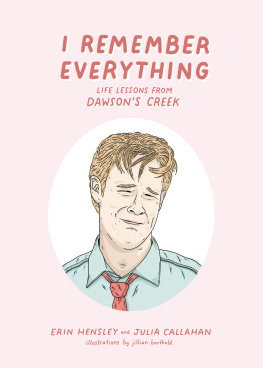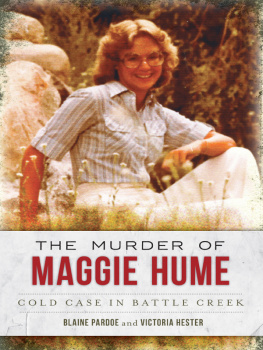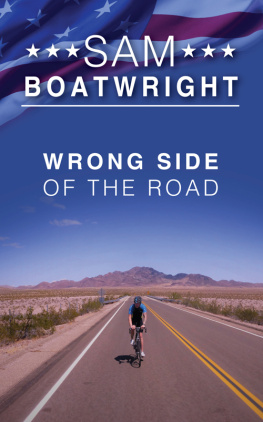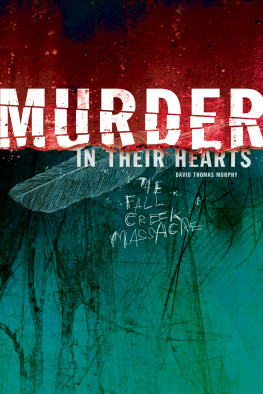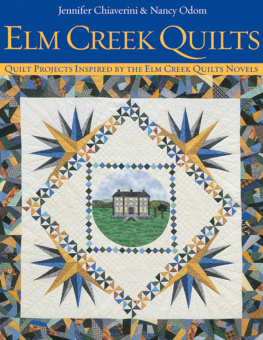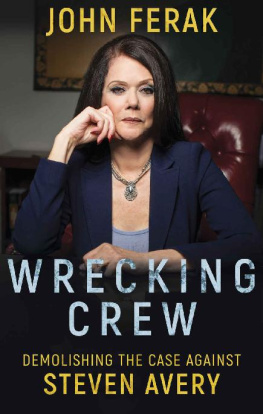Bob Zellner - The Wrong Side of Murder Creek
Here you can read online Bob Zellner - The Wrong Side of Murder Creek full text of the book (entire story) in english for free. Download pdf and epub, get meaning, cover and reviews about this ebook. year: 2011, publisher: NewSouth Inc., genre: Non-fiction / History. Description of the work, (preface) as well as reviews are available. Best literature library LitArk.com created for fans of good reading and offers a wide selection of genres:
Romance novel
Science fiction
Adventure
Detective
Science
History
Home and family
Prose
Art
Politics
Computer
Non-fiction
Religion
Business
Children
Humor
Choose a favorite category and find really read worthwhile books. Enjoy immersion in the world of imagination, feel the emotions of the characters or learn something new for yourself, make an fascinating discovery.
- Book:The Wrong Side of Murder Creek
- Author:
- Publisher:NewSouth Inc.
- Genre:
- Year:2011
- Rating:4 / 5
- Favourites:Add to favourites
- Your mark:
- 80
- 1
- 2
- 3
- 4
- 5
The Wrong Side of Murder Creek: summary, description and annotation
We offer to read an annotation, description, summary or preface (depends on what the author of the book "The Wrong Side of Murder Creek" wrote himself). If you haven't found the necessary information about the book — write in the comments, we will try to find it.
The Wrong Side of Murder Creek — read online for free the complete book (whole text) full work
Below is the text of the book, divided by pages. System saving the place of the last page read, allows you to conveniently read the book "The Wrong Side of Murder Creek" online for free, without having to search again every time where you left off. Put a bookmark, and you can go to the page where you finished reading at any time.
Font size:
Interval:
Bookmark:

The Wrong Side of Murder Creek
A White Southerner
in the Freedom Movement
Winner of the 2009 Lillian Smith Book Award
Bob Zellner
with Constance Curry
Foreword by Julian Bond
NewSouth Books
Montgomery | Louisville
NewSouth Books
105 South Court Street
Montgomery, AL 36104
Copyright 2008 by Bob Zellner. All rights reserved under International and Pan-American Copyright Conventions. Published in the United States by NewSouth Books, a division of NewSouth, Inc., Montgomery, Alabama.
ISBN-13: 978-1-58838-222-1
eBook ISBN: 978-1-60306-104-9
LCCN: 2008025962
Visit www.newsouthbooks.com.
With love to
Dad and Mom, who prepared me for the journey;
to my brothers, Jim, Doug, David, and Malcolm;
to my daughters, Margaret and Katie;
to my wife, Linda;
and to Maggie Donovan.
Julian Bond
Although his lifes journey eventually would take him to New York, Bob Zellner was as Southern as MoonPies and RC Cola when we first met in Atlanta in 1961.
At the time, I was the Communications Director for the Student Nonviolent Coordinating Committee (SNCC), an organization born from the ferment created by sit-in demonstrations in early 1960.
From the first, SNCC was an interracial organization. Bob Zellner was its first white field secretary, but Jane Stembridge, daughter of a white Baptist minister and a student at Union Theological Seminary, was the organizations first employee. SNCCs workers were the new abolitionists historian Howard Zinn described in the first book written about the group. Zinn called SNCC more a movement than an organization.
Having surveyed the backgrounds of one-third of the SNCC staff in late 1963, Zinn wrote:
Of the six white staff members two were from the Deep South. The white youngsters and most of the Northern Negroes came from middle-class homes; their fathers were ministers or teachers or civil service workers... These are young radicals. The word revolution occurs again and again in their speech.
Like many other black and white Southerners drawn into the movement, Zellners inspiration came from his religious faith.
Born in L.A.lower AlabamaJohn Robert Zellner was the son of a Methodist minister. Bob attended Huntingdon College in Montgomery, Alabama. He and four fellow students at the all-white Methodist-related school became locally notorious as the Huntingdon Five when they outraged school authorities and state officials by daring to attend a civil rights meeting. Bob and his four friends took seriously a sociology class assignment to research solutions to racial problems. Despite their professors adamant orders not to do so, they attended a meeting with black students from what was then called Alabama State College for Negroes, and later an anniversary celebration of the 195556 Montgomery Bus Boycott.
Their research brought them to the attention of Alabamas Attorney General, MacDonald Gallion, who warned them that they were falling under communist influence.
Are there communists in Alabama? Zellner asked incredulously. No, answered the Attorney General, but they come through here.
Bob Zellner was one of relatively few white Southerners engaged in the activist Southern civil rights movement of the 1960s literally from the beginning. The grant to hire him came to SNCC from the Southern Conference Education Fund (SCEF), a progressive organization whose newspaper, The Southern Patriot , was frequently the only outlet for news from the civil rights battlefield.
It was Zellners good fortune that his guide and mentor in the world of anti-racist activism was a courageous white Alabama woman, Anne Braden, SCEFs director. Anne and her husband Carl nurtured many young whites like Bob in the intricacies and difficulties of fighting rigid American apartheid in a world where almost all whites were hostile and many were dangerous.
It was also Bobs good fortune that Connie Curry, another Southern white woman who knew and supported the student civil rights movement from its inception, agreed to work with Bob on this book. An accomplished writer who knows the territory, Connie has helped Bob tell his story in a compelling way. And he has a compelling story to tell.
The Student Nonviolent Coordinating Committee Bob that joined organized nonviolent direct action against segregated facilities. We conducted voter registration projects in Alabama, Arkansas, Maryland, Missouri, Louisiana, Virginia, Kentucky, Tennessee, Illinois, North and South Carolina, Georgia, and Mississippi. We built two independent political parties and organized labor unions and agricultural cooperatives. SNCC gave the movement for womens liberation new energy and inspired and trained many of the activists who began the New Left. SNCC helped expand the limits of political debate within black America and broadened the focus of the civil rights movement.
The son and grandson of Ku Klux Klan members, Bob initially was hired by SNCC to conduct outreach to Southern white students, explaining the civil rights movement to them and soliciting their involvement and support.
The Wrong Side of Murder Creek is a travelogue of civil rights hot-spots that Zellner frequented, from his inauguration into the movement in Montgomery, Alabama, the Cradle of the Confederacy; to Mobile and Talladega, Alabama; McComb and Greenwood, Mississippi; Albany, Georgia; Danville, Virginia; and other towns large and small, where the battles were fought.
In McComb, a small town in southwestern Mississippithe most racially recalcitrant state in the Southhe joined his black colleagues in a violence-plagued campaign against entrenched segregation. Bob was arrested and beaten into unconsciousnessnot for the last timewhen an enraged white mob, encouraged by the eerily coincidental presence of a racist schoolmate who had tormented Zellner at Huntingdon College for his racial liberalism, turned on him with lead pipes and baseball bats.
White civil rights activists faced unique torments. While Zellners black colleagues won respect and admiration in their communities, he and other white Southerners earned the hatred and contempt of their contemporaries. It took a special brand of commitment and courage to do this work, and Bob never lacked for either.
When his minister father broke with the Klan, Bobs mother made white Sunday school shirts for Bob and his brothers from their fathers Klan robe. Bob writes that when things got tough for him and his name became well-known, drawing disapproval from many Alabama whites, his brothers all agreed to sayYes, hes my brother, and Im proud of it.
Bob Zellner has been my brother since 1961, and Im proud of it, too.
The New Abolitionists by Howard Zinn, Beacon Press, Boston, 1964.
Julian Bond has been chairman of the NAACP Board of Directors since February 1998. He is a Distinguished Scholar in the School of Government at American University in Washington, D.C., and a professor in the Department of History at the University of Virginia.
Constance Curry
I recently spoke to a meeting of a black womens sorority at Emory University, here in Atlanta. I talked about my time with the Student Nonviolent Coordinating Committee (SNCC) in the early 1960s and the courageous black families across the South with whom I later worked as Southern field secretary for the American Friends Service Committee. These families, trained and taught by SNCC workers, were involved in school desegregation after the 1964 Civil Rights Act and voter registration after the 1965 Voting Rights Act. The Emory students were absolutely floored to hear that white people like me had been involved in the freedom movement. I assured them that we had been there to support a movement that young black people started and leda movement that lasted a short time but changed this country forever. As I have traveled to other campuses these days, I have found the same thingvery little knowledge of the violence that pervaded such a short time ago and the history of the enormous student participation in the movement. All of this has reminded me of what Bob Moses said at the thirtieth anniversary of SNCCthat we needed to start writing our own stories, because history and historians will either not tell about it or will get it wrong.
Font size:
Interval:
Bookmark:
Similar books «The Wrong Side of Murder Creek»
Look at similar books to The Wrong Side of Murder Creek. We have selected literature similar in name and meaning in the hope of providing readers with more options to find new, interesting, not yet read works.
Discussion, reviews of the book The Wrong Side of Murder Creek and just readers' own opinions. Leave your comments, write what you think about the work, its meaning or the main characters. Specify what exactly you liked and what you didn't like, and why you think so.

